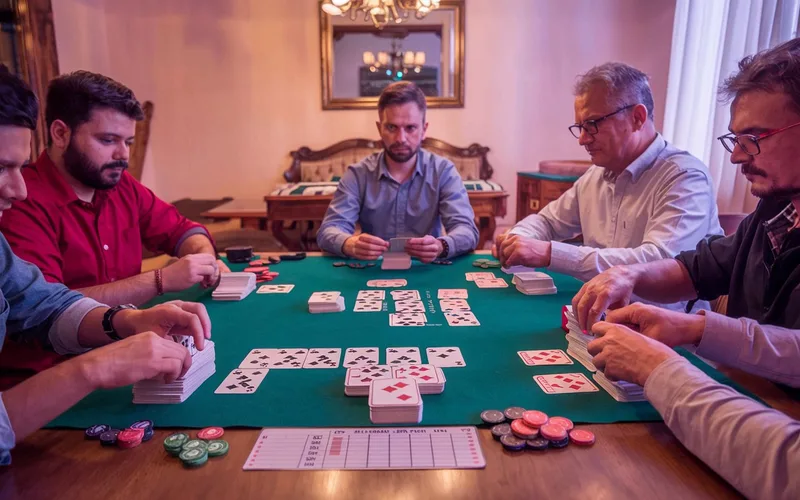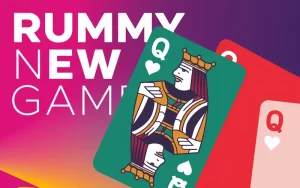Types of Rummy Games is one of the most popular card games played across the world, and India is no exception. From casual games with family to intense tournaments, rummy has evolved in many ways over the years. If you’re someone who enjoys the thrill of a card game, you’re likely familiar with rummy games. But did you know there are several types of rummy games? Each variation brings its own set of rules and strategies. Whether you are a beginner or an expert, there’s a version of rummy that can cater to your taste and skill level.
In this article, we will explore the types of rummy games available to players, taking you through a journey from beginner-level games to those played by seasoned pros. By the end, you’ll not only know the various types of rummy games but also be prepared to pick the one that suits you best. Ready to dive in? Let’s get started!
What is Rummy?
Rummy is a card game that involves forming valid sets or sequences from the cards you are dealt. It’s a game of skill, strategy, and patience. While the rules may slightly differ across various types of rummy games, the primary objective remains the same – to form sets of three or more cards of the same rank or sequences of cards of consecutive values.
In India, rummy is played in both physical and online formats. The beauty of rummy lies in its simplicity and the endless possibilities for strategic moves, making it appealing to both casual and competitive players.
Types of Rummy Games

When we talk about the types of rummy games, we refer to the various variations of the game that have emerged globally. These versions differ in the rules, the number of players, and the strategies required. Some are simpler, while others demand more complex decision-making. Here are the most popular types of rummy games you can try:
Classic Rummy (Indian Rummy)
Indian Rummy, also known as Classic Rummy, is one of the most widely played types of Types of Rummy Games in India. Typically played with two decks of cards, the game is for two or more players, and the goal is to form valid sets and sequences before your opponents do. It’s a blend of skill and luck, and the faster you pick up the game, the better your chances of winning. Indian Rummy requires players to meld cards in sequences or sets to declare victory.
Gin Rummy
A popular variation, Gin Rummy is typically played by two players. The game uses a single deck of 52 cards. The objective is to form valid sets and runs of cards, while minimizing the points in your hand. Gin is declared when a player completes their hand with all cards forming valid sets or runs. This version is fast-paced and requires strategic decision-making, as players are constantly vying to improve their hands while preventing their opponents from doing the same.
Kalooki Rummy
Kalooki Rummy is similar to Indian Rummy but with a slight twist. Players must form sets of three or more cards, but the rules around discarding and drawing from the discard pile are different. Players also have the option to “meld” part of their hand and continue playing. It’s a great variation for players who enjoy a challenge and are looking for something different.
Oklahoma Rummy
Oklahoma Rummy is a variant where the first card dealt to each player dictates the maximum limit for that particular round. For example, if the first card is a 5, players can only use cards of rank 5 or below in their sets or runs. This adds an interesting layer of complexity, as players have to adjust their strategy based on the card dealt at the start.
Contract Rummy
Contract Rummy is an interesting variation where the game is played in multiple rounds, each with specific objectives. Players need to complete a set or sequence for each round based on predetermined rules (the “contract”). The challenge in this version is to remember the sequence of contracts and complete them while adapting to the evolving situation at the table.
Canasta
Canasta is a more complex version of rummy that is typically played by four players in two teams. The goal of Canasta is to form “melds” of seven or more cards of the same rank, and the players must try to outdo each other by forming these melds before their opponents. Canasta has specific rules regarding the use of wild cards and is often played in tournaments.
500 Rummy
In 500 Rummy, players aim to reach 500 points by forming sets or runs of cards. The game is played over several rounds, with players accumulating points as they form valid combinations. It’s a fun version for those who enjoy longer games and strategic thinking.
Rummy Cube
Rummy Cube (also known as Rummikub) is a tile-based version of the card game, popular among family and friends. The game involves the same principles of forming sequences and sets but is played with tiles numbered 1-13 in four different colors. Rummy Cube offers a fresh and exciting way to enjoy the essence of Types of Rummy Games without the traditional deck of cards.
Points Rummy
Points Rummy is one of the fastest forms of Types of Rummy Games, played mostly online. Players play with chips instead of physical cards, and the game usually has a fixed point system. The goal is to win each round and collect points, ultimately leading to a higher score. This version is quick, and players need to have sharp decision-making skills to succeed.
Best Rummy Game for Beginners
If you’re just starting out, Indian Rummy is your best bet. Its straightforward rules and the chance to learn while playing make it perfect for beginners. As you become comfortable with the game, you can try the other variations. The key is to practice and improve your skills as you go.
Pro Tips for Advanced Rummy Players
For those already familiar with the basics of rummy, advancing to expert-level play can be incredibly rewarding. Here are a few pro tips to help you level up:
- Observe your opponents: Pay attention to the cards they discard and pick. This can give you insight into their hand.
- Plan your moves: Think ahead and try to anticipate the cards you might need.
- Manage your hand: Don’t be afraid to discard cards early if they don’t help your strategy.
- Master the art of bluffing: Sometimes, throwing your opponent off track can be the key to winning.
Why Play Rummy? Benefits Beyond Entertainment
Rummy is not only a fun card game but also offers several mental benefits. Playing Types of Rummy Games helps improve critical thinking, problem-solving skills, and memory. It also sharpens your ability to concentrate, and in multiplayer versions, you can enjoy social interaction. Whether you’re playing to relax or challenge yourself, Types of Rummy Games provides both entertainment and cognitive benefits.
Conclusion
In conclusion, there is no one-size-fits-all when it comes to types of rummy games. From the classic Indian Rummy to more intricate variations like Canasta or Rummy Cube, there is a rummy game for everyone, regardless of their skill level. If you’re a beginner, start with the basics, and as you get more experienced, explore the different types to add variety to your gameplay. Enjoy the game, practice, and most importantly, have fun!







